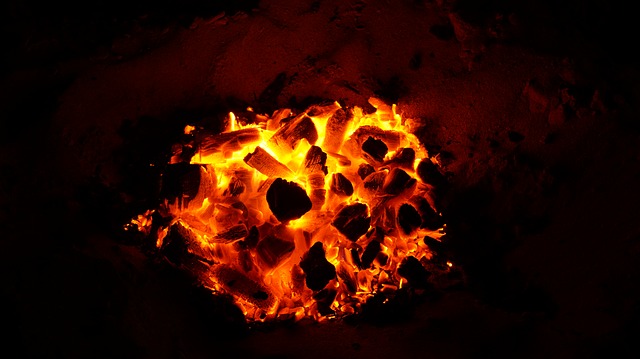7″ Remember, O Lord, against the Edomites the day of Jerusalem, how they said, ‘Lay it bare, lay it bare, down to its foundations!’ 8 O daughter of Babylon, doomed to be destroyed, blessed shall he be who repays you with what you have done to us! 9 Blessed shall he be who takes your little ones and dashes them against the rock!” – Psalm 137:7-9
Impending Judgement
This is a difficult passage of scripture. We have spent the last couple of devotions looking at the first six verses of this Psalm, and I thought it was only “fair” to look at the last three. Throughout this Psalm the imagery is vivid and the emotions are raw. The Psalmist doesn’t leave us guessing about his passion. In the siege of Jerusalem and its ensuing destruction, he has witnessed many atrocities (Lamentations 5:11). As if the looting of his home and the destruction of the sacred Temple were not bad enough, he also had to witness the violation of loved ones and the unthinkable cruelty of the execution of infants. With these images seared in his mind, the Psalmist gives vent to his emotions. May justice be served. May the guilty be held accountable. May they experience the pain they have inflicted on others.
While the Babylonians were razing Jerusalem, the Edomites were fanning the flames. Descended from Esau, the brother of Jacob, the Edomites were a “sister-nation” to Israel. Rather than coming to Israel’s defense, however, the Edomites encouraged the utter destruction of Jerusalem, with chants of “Lay it bare, lay it bare, down to its foundations.” Rather than sympathizing with the Israelites, they reveled in their misery. If Esau couldn’t get his birth rite back from Jacob he was going to find satisfaction in his agony and encourage his destruction. “Remember, O Lord, the day of Jerusalem.”
While the Psalmist prays for retribution against the Edomites, he speaks of the judgment of Babylon as a matter of certainty. It is going to happen. Blessed is the one to execute it. Like Jerusalem, Babylon will be destroyed. Your little ones will be dashed against the rocks just as you did to ours. You can’t get much more graphic. Like his beloved city, the Psalmist is broken. At first glance, it appears he is looking for revenge. But is he?
Vengeance is Mine
In regards to the Edomites, the Psalmist prays that God will remember them. He is asking God to do what only God can. He is asking God to judge the Edomites. He is leaving them in God’s hand. Undoubtedly he was familiar with the words of Deuteronomy.
9 “But the Lord‘s portion is his people,
Jacob his allotted heritage.” – Deut. 32:9
35 “‘Vengeance is mine, and recompense,
for the time when their foot shall slip;
for the day of their calamity is at hand,
and their doom comes swiftly.’
36 For the Lord will vindicate his people
and have compassion on his servants,
when he sees that their power is gone
and there is none remaining, bond or free.” – Deut. 32:35-36
The Psalmist knows of the special relationship between God and His allotted heritage Jacob. He also knows that the Lord will vindicate His people. What appears at first glance to be a personal vendetta is actually the recognition of God’s promise for His people. Although they are not immune from suffering, God will have compassion on them when He sees their power is gone. Such was their predicament as exiles in Babylon. While powerless to defend themselves, the Israelites looked to God to fulfill His Word and act on their behalf. Before we judge too harshly the details of verse nine, let’s look at some other passages the Psalmist was probably familiar with.
43 “Rejoice with him, O heavens;
bow down to him, all gods,
for he avenges the blood of his children
and takes vengeance on his adversaries.
He repays those who hate him
and cleanses his people’s land.” – Deut. 32:43
16 “Their infants will be dashed in pieces
before their eyes;
their houses will be plundered
and their wives ravished.” – Isaiah 13:16
A Coming Day
In time God would use the Medes and Persians to judge Babylon. The barbaric acts done by the Babylonians would be reciprocated. In His time God will vindicate His people. Despite the trials we are going through we can have confidence in the Word of God. We may not know His timing. We certainly can’t understand His methods. While we don’t understand God’s ways, we know that they are much higher than ours. Like the Psalmist, we must submit to His will. We must embrace the justice of God as well as the grace and mercy. God will not be mocked. While the Psalmist asked God to remember the day of Jerusalem, it is good for us to be mindful of the fact that the day of the Lord is coming.
12“For the LORD of hosts has a day
against all that is proud and lofty,
against all that is lifted up—and it shall be brought low.” – Isaiah 2:12
17“And the haughtiness of man shall be humbled,
and the lofty pride of men shall be brought low,
and the LORD alone will be exalted in that day.” – Isaiah 2:17
The prophecies of the day of the Lord will be fulfilled just as surely as the judgment of Babylon. Before the great day of judgment arrives, may we be fervently praying that our “enemies” might embrace the grace of God and be spared. It is evident from the passion of the Psalmist that the day of Jerusalem was terrible. But it won’t compare to the day of the Lord. While it is comforting to emphasize the fact that God is love, we must always be true to His word and also recognize that He is a God of justice. Sin will not go unpunished. When it is punished, it is often barbaric. The cross is all the proof we need. God’s ways are higher than ours. Thank God.
4“The Rock, his work is perfect,
for all his ways are justice.” – Deut. 32:4





